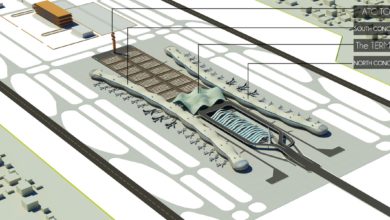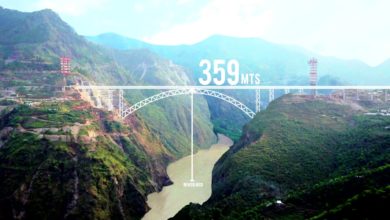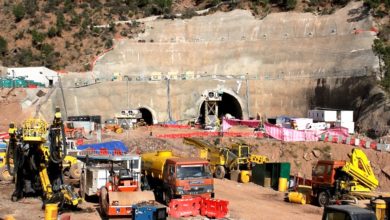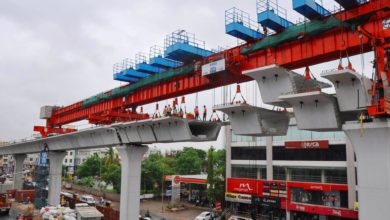Infrastructure Industry forecast
Paul Wallett, Regional Director, Middle East and India, Trimble Solutions
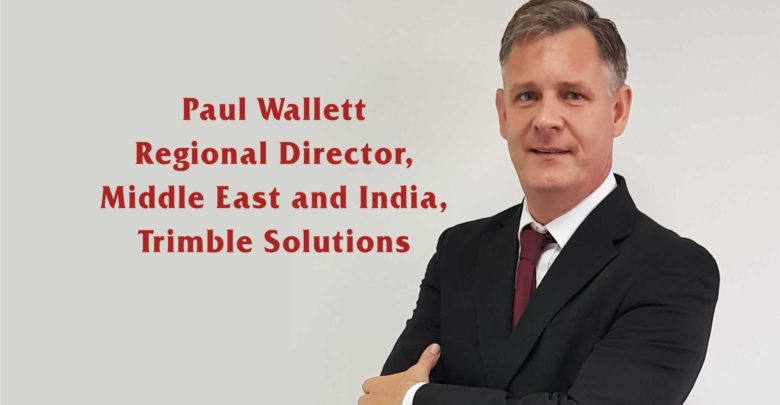
The global infrastructure and construction industry has been hit hard by the COVID-19 pandemic. In April this year Fitch Solutions has pegged the global growth forecast for the construction sector in 2020 at 0.9% y-o-y, following what it calls‘ a series of substantial downward revisions to construction markets globally as lockdowns and economic challenges are set to hit project activity’. Notably, Fitch had earlier forecast a 3.5% y-o-y growth for the sector in 2020.
However, given the close linkages between infrastructure spending and economic growth, many governments around the world are expected to ramp up infrastructure construction as their response to the economic fallout of the pandemic. As a result, the mid to long term outlook for infrastructure and construction remains robust and the real impact on the evolving economy will be visible over the next few months.
In the near term however, the industry has to deal with what is now frequently termed ‘an era of radical uncertainty’. Businesses and governments are still dealing with an unfolding crisis with no end in sight; and are racing to craft and execute appropriate responses, not only to secure safe health outcomes for all, but also to ensure that lifestyles and livelihoods are protected. As per media reports, the Indian Government is actively pushing the ‘plug and play’ scheme for fast-tracking the infrastructure investment proposals. In a high-level meeting chaired by the PM it was discussed that a system should be developed to promote more plug and play infrastructure in the existing industrial lands/plots/estates in the country to provide the necessary financial support.
Another boost is the final report on the National Infrastructure Pipeline submitted to the Finance Minister Nirmala Sitharaman that talks about the infrastructure investment worth Rs 111 lakh crore between 2020-2025, using both the Government and private funding. As per the reports, projects worth Rs 44 lakh crore are already under implementation while projects worth Rs 33 lakh crore are at the conceptual stage and projects worth Rs 22 lakh crore are still under development. Priority sectors include energy (24%), roads (18%), urban infrastructure (17%) and railways (12%).
It is also important to note that infrastructure construction is one of the most labour-intensive industries, and ensuring the appropriate social distancing between a set of on-site workers will necessitate slowing down of work; which would quite likely lead to delays in completion of projects. The pandemic is here to stay, and in our view, the infrastructure construction industry needs to aggressively look for ways to retain their pre-lockdown productivity, or perhaps even increase, even while following social distancing norms. We believe that a thorough digitalization of construction industry workflows and the deployment of cutting-edge technologies like constructible BIM, mixed reality, IOT, AI and robotics can be powerful enabler of rapid gains in productivity, so much so as to offset and overcome the inevitable losses on account of social distancing norms.
We are therefore confident that the construction industry will accelerate its digital transformation in the post COVID-19 era by embracing modern construction technology and cloud-based tools, which in turn will help the industry players meet their project deadlines while reducing costs and wastage. In fact, a recent report by McKinsey noted that already in the three months of lockdown, the industry has leaped forward in terms of five years in their adoption of technology. At Trimble, we have seen a 40-50% increase in adoption of technology solutions in the last three months.
For the Infrastructure industry to fully bounce back from the pandemic and the economic slowdown, it will necessarily have to adapt to the “new normal”, and we believe that a complete digitalisation of workflows will be an important ingredient of this new normal.
Mr. Paul Wallett, in the role of Regional Director for the Middle East and India, is responsible for business operations, management of overall strategy for the UAE, & Saarc regions. He aims to build upon Trimble Solutions double-digit growth and expansion of Structures, MEP, GC/CM, Architecture and Real Estate and Workplace businesses, within the Trimble Buildings’ Design-Build- Operate portfolio.
He was appointed to his current role in the late-2016, after a two-year stint as the company’s Area Director for Middle East, based in Dubai. “At a time of sustained growth across the region’s construction industry, we are here to help our customers and partners realize maximum profit from their projects,” said Paul Wallett. “Constructible BIM-enabled software is the way forward for the construction industry and Trimble will continue to help the construction industry learn and adopt BIM for productive growth.” Overall, Mr. Wallett has been with Trimble continuously since 2005, and previously served with Tekla UK from 2000-2004.
Mr. Wallett brings over 30 years of in-depth international and regional experience to his post, having worked in software industry in the United Kingdom, Far East, United States, and the Middle East over the past 22 years.



